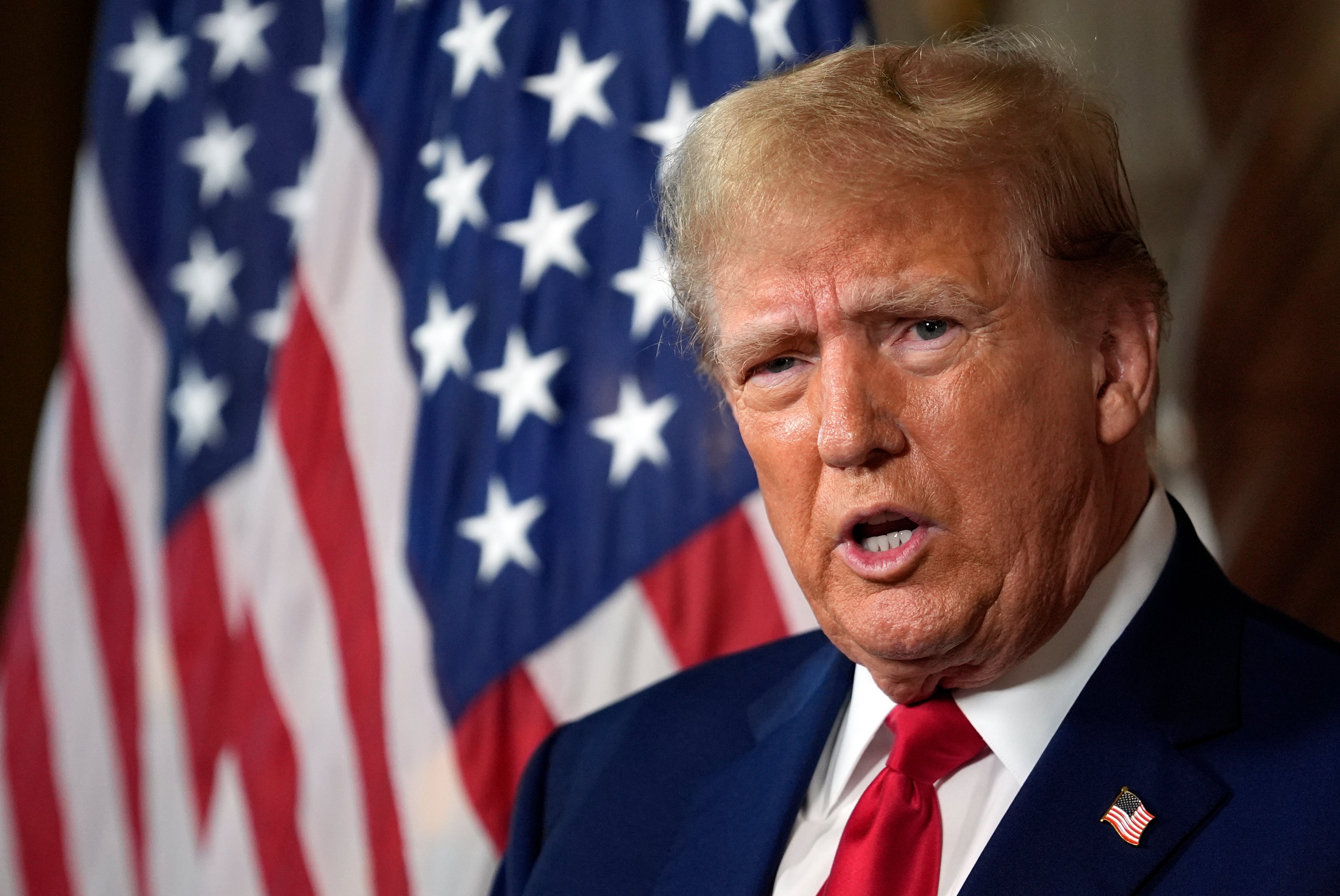What the Supreme Court ruling means for Donald Trump
Former president will appear and remain on the primary ballots in Colorado, Maine and Illinois
Your support helps us to tell the story
From reproductive rights to climate change to Big Tech, The Independent is on the ground when the story is developing. Whether it's investigating the financials of Elon Musk's pro-Trump PAC or producing our latest documentary, 'The A Word', which shines a light on the American women fighting for reproductive rights, we know how important it is to parse out the facts from the messaging.
At such a critical moment in US history, we need reporters on the ground. Your donation allows us to keep sending journalists to speak to both sides of the story.
The Independent is trusted by Americans across the entire political spectrum. And unlike many other quality news outlets, we choose not to lock Americans out of our reporting and analysis with paywalls. We believe quality journalism should be available to everyone, paid for by those who can afford it.
Your support makes all the difference.The challenges to former president Donald Trump’s ballot eligibility have ended after the Supreme Court ruled states did not have the authority to remove him under Section Three of the 14th Amendment.
On Monday, the highest court in the land decided that the Colorado Supreme Court’s decision to remove Mr Trump from the primary ballot in Colorado was incorrect – claiming Congress, not states, only had the right to make that decision.
This means states where Mr Trump was removed from the ballot, including Colorado, Illinois and Maine, must keep the one-term president on their ballots.
Lawsuits pending in other states will likely be thrown out as they are now unnecessary.
Shortly after the historic ruling, Colorado Secretary of State, Jena Griswold, issued a statement informing all voters that Mr Trump would appear on the state’s ballot in time for Super Tuesday. Though Mr Trump was determined ineligible in the state’s primary, his name would have appeared on the ballot anyway as the state awaited the Supreme Court’s decision.
Similarly, Maine Secretary of State Shenna Bellows issued a statement saying the former president will appear on the ballot in time for its March 5th primary, just as he would have.
Mr Trump will also appear on Illinois’s ballot for its 19 March primary.

The challenges to Mr Trump’s ballot eligibility were brought by voters in each state, backed by organisations, who believed the former president’s rhetoric leading up to and on January 6 incited violence at the Capitol which they said was an insurrection.
Section Three of the 14th Amendment prohibits individuals or officers of the United States from seeking office if they engaged in rebellion or aided enemies of the United States.
Under the novel theory, the challengers said Mr Trump should be disqualified for his actions.
The Supreme Court did not weigh in on the insurrection clause, or whether or not Mr Trump participated. Their ruling was limited to the constitutional power of the states versus Congress.
The decision, handed down Monday morning, was unanimous – though the liberal majority of the court and Justice Amy Coney Barrett believed the conservative majority overexpanded their reasoning for the ruling.
Mr Trump called the decision a “big win for America” saying that the court’s decision protects himself and future presidents’ right to run for office.

Join our commenting forum
Join thought-provoking conversations, follow other Independent readers and see their replies
Comments